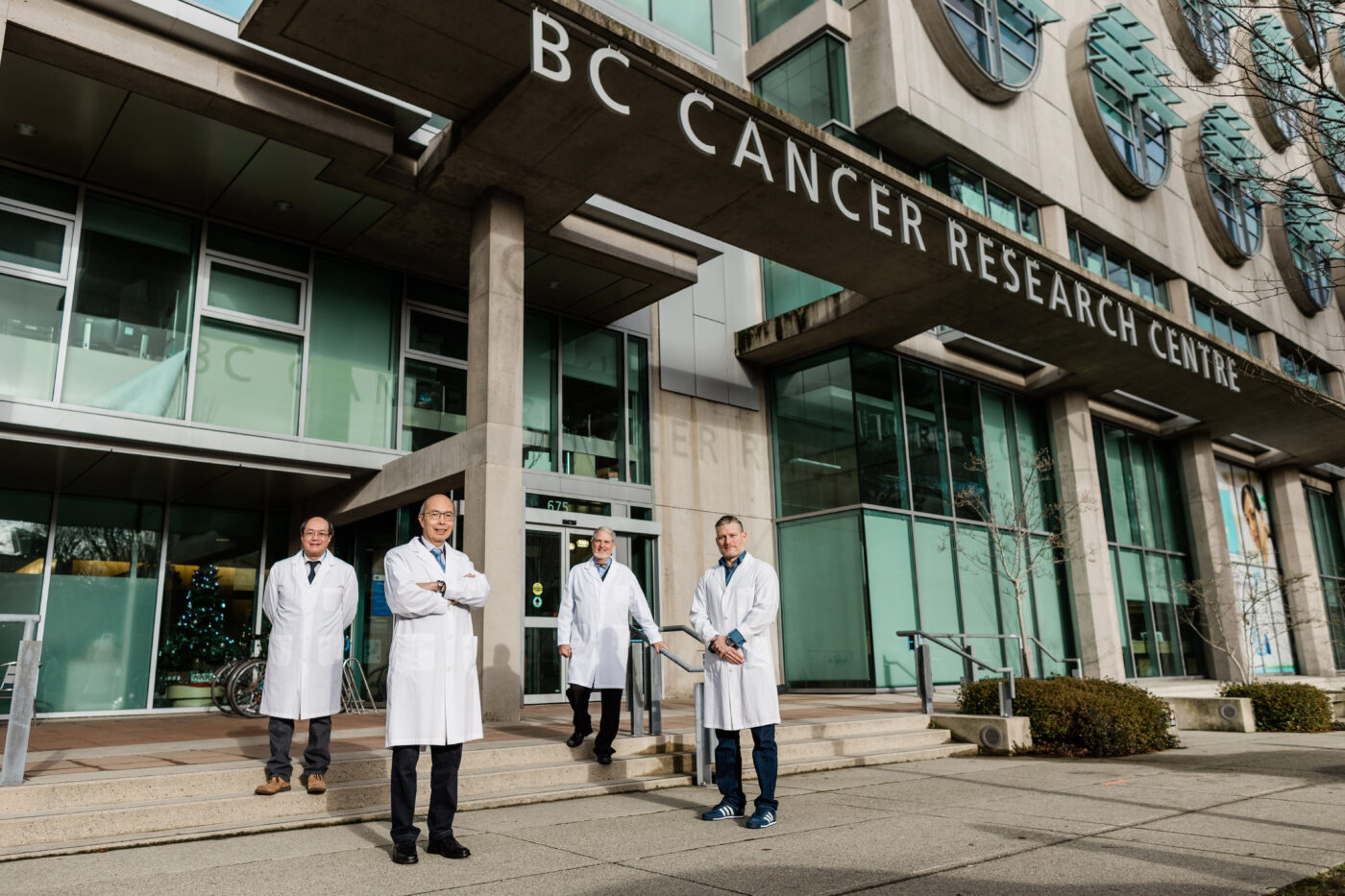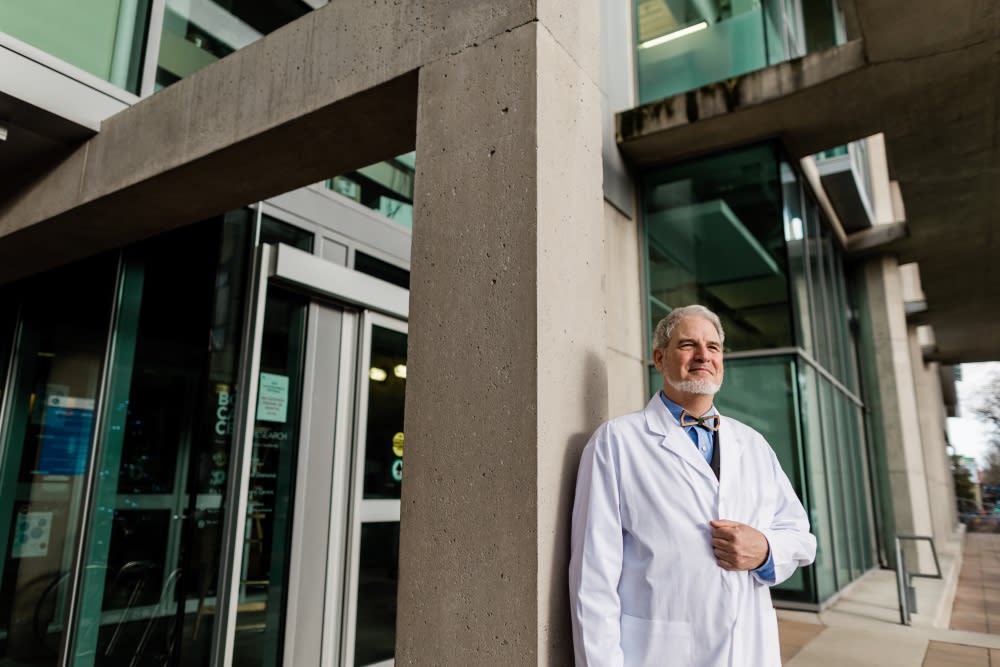Five Ways Donors are Advancing Lung Cancer Research and Care
November 4, 2025
Found in BC Cancer - Vancouver, Lung cancer

From a first-in-Canada provincial screening program to a transformative, world-impacting research breakthrough in cancer in never-smokers, BC Cancer is internationally recognized as a leader in lung cancer research and care.
Here’s how donor investment is driving BC Cancer’s life-saving work in the most commonly diagnosed cancer in the province and the leading cause of cancer-related death.
1. Pioneering screening program is catching cancer when its more treatable
In 2022, empowered by almost $2 million in donor support, B.C. implemented Canada’s first provincial lung cancer screening program for eligible, high-risk individuals (people aged 55-74, who have significant smoking history).
It has since detected 71% of participant’s lung cancers at earlier more treatable stage. This is critical because lung cancer symptoms usually appear only after it has spread — resulting in nearly half of all cases diagnosed at Stage 4, when survival is just 3%, compared to 62% if caught early at Stage 1.
2. Harnessing AI to help predict aggressive cancers
Building on this success, BC Cancer’s lung team is developing an AI model to analyze subtle patterns in the CT scans from the screening program to predict which lung nodules are likely to become cancerous. Not only will this catch aggressive cancers earlier, at a more treatable stage, it will reduce unnecessary scans for lower-risk patients.
3. A stigma-smashing discovery in cancer in non-smokers
In 2010, BC Cancer researchers discovered that lung cancer in non-smokers (which accounts for 30% of lung cancer cases in B.C.) is a completely different disease.
This groundbreaking finding is prompting alternative diagnostics such as the donor-funded BC Cancer Breathomics Lab’s development of a novel breath test which identifies chemical signatures to detect early lung cancer and provide insight into how changes in the lung microbiome may indicate lung cancer development in non-smokers.
4. Powerhouse first-in-Canada technologies are advancing research
Essential in processing the thousands of breath samples to develop the test to detect early lung cancer in non-smokers, and other innovative studies, is the GC Orbitrap Exploris.
Donor support, including a $250,000 matching gift from Marion Mann and Scott Shaw, allowed BC Cancer’s Breathomics Lab to become one of the first in the world to acquire this state-of-the-art technology.
A “workhorse” in studying exhaled breath chemicals, the GC Orbitrap Exploris far surpasses in volume and speed what the former system could — particularly crucial in that breath samples cannot be stored for very long once collected.
Thanks to a $3 million investment from the Leon Judah Blackmore Foundation, BC Cancer was also the first in the country to acquire a Photon Counting CT scanner.
This technology produces sharper, more detailed images, while also significantly reducing radiation exposure to patients, and is opening new doors for research, especially in understudied populations like never-smokers.
5. Identifying high risk populations
Using satellite data and ground measurements and tracking the residential histories of several populations across the world, BC Cancer’s Leon Judah Blackmore Foundation Chair in Lung Cancer Research Dr. Stephen Lam, discovered women of Asian descent are more susceptible to lung cancer due to a history of exposure to air pollution.
Dr. Lam and his team are expanding on this study to understand why Asian women are more vulnerable, compared to Asian men and other populations, and whether it’s a result of a genetic factor, an environmental influence, or a mix of both.
Their research could lead to new intervention techniques or drug development to help protect high-risk individuals in parts of the world impacted by poor air quality.

Help Advance Life-Saving Lung Cancer Research and Care
Your support is driving BC Cancer's world-leading work in the most common cancer in B.C.
Donate Today

